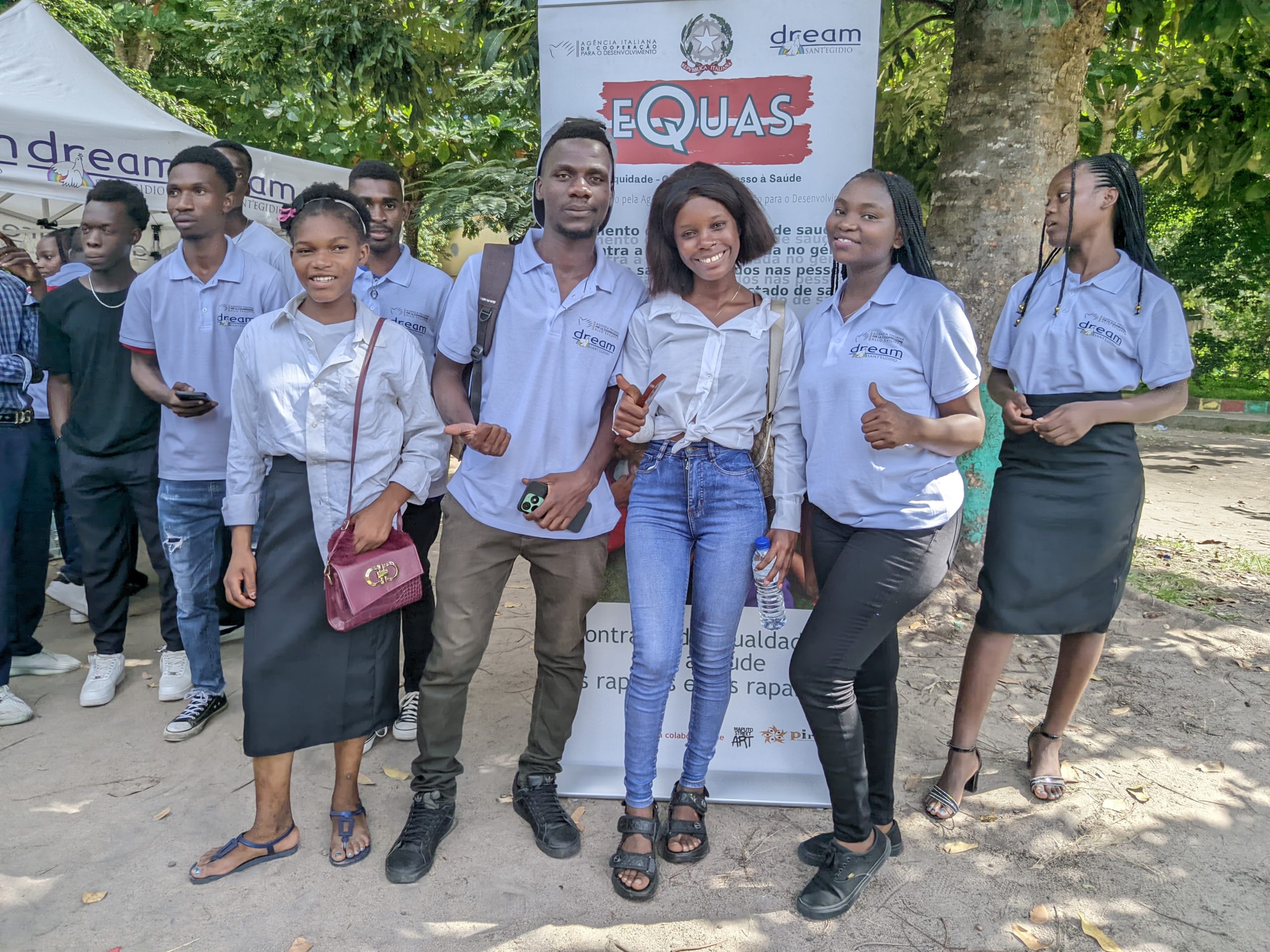EQuAS project events: when participation becomes care
In Mozambique, health remains a pressing challenge. Yet, there are grassroots initiatives that put people at the center and build new, tangible, and inclusive responses.
EQuAS is one of these pathways. A project that goes beyond service delivery, giving voice, dignity, and agency back to those who are too often left on the margins—starting with young people.
The EQuAS project – Equity, Quality, Access to Health – is promoted by the DREAM Program of the Community of Sant’Egidio and funded by the Italian Agency for Development Cooperation as part of the 5% Global Fund initiative. Its goal is to improve access to equitable and quality healthcare services for people most vulnerable to HIV in Mozambique. Active in seven health centers across the provinces of Maputo, Maputo City, Sofala, and Zambezia, the project focuses particularly on adolescents and young adults aged 15 to 24—a population group often excluded from prevention and care pathways.
Over its 24-month implementation, EQuAS aims to train 140 health and social care workers, run a testing and awareness campaign reaching over 5,000 young people, strengthen three health centers through psychosocial support services, and create safe spaces for listening, care, and support. But EQuAS is not only a technical program—it’s also a project rooted in active community participation, with young people playing a leading role.
Alongside its daily work in health centers, the project has organized a series of public and community events that transformed schools, urban spaces, and healthcare facilities into places of dialogue, learning, and awareness. These events allowed girls and boys to experience health in a new way—not as something distant, but as something concrete, inclusive, and accessible.
Sports, music, painting, poetry, crafts workshops, and personal testimonies were combined with opportunities for HIV testing, counseling, and health education—creating a shared language that blended education, culture, and prevention.
These initiatives engaged over 500 people, including adolescents, healthcare workers, teachers, activists, and institutional representatives. And at the heart of it all: the youth.
Young people who speak up about mental health, who discuss their HIV status, who discover their right to be heard and supported. Young people who, through art and everyday life, express what it means to live with HIV today and how they imagine a different, fairer future.
These events are essential tools for building trust, reducing stigma, and strengthening the connection between healthcare services and the community. They enabled dozens of adolescents, for instance, to approach HIV testing for the first time, to receive clear and non-judgmental information, and to find empathy and support.
This is how EQuAS aims to strengthen the health system—not only through the quality of services, but also through the equity of care pathways, the power of relationships, and the creativity of participation.
It’s a method that works because it doesn’t come from above—it grows from below, rooted in people’s real needs and their ability to lead change.
Investing in youth means recognizing them as drivers of social transformation. It means creating space for their voices, their skills, and their vulnerabilities. It means building, with them, a new way of experiencing health—more humane, more just, more connected.
